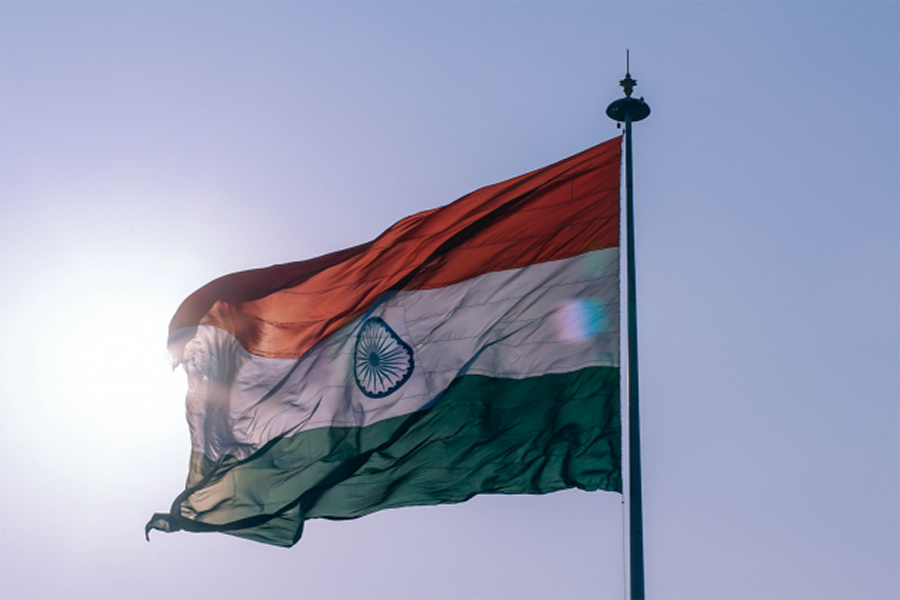Today, the Hindu American Foundation released the following statement from Executive Director Suhag Shukla, Esq. on the recent Indian Supreme Court judgement regarding the steps taken by the Government of India to prevent the loss of life following the government’s decision to grant Union Territory status to the state of Jammu & Kashmir on August 5, 2019:
“What we are witnessing in India with regard to Kashmir is democracy in action. We welcome the Indian Supreme Court’s ruling. The decision provides important definitions, parameters of law, and, most importantly, clarity regarding the legality of the steps taken by the Government of India post-August 5th. As Americans, we urge the United States government to support the Indian government’s life saving measures and to work with our ally India in striking the right balance to ensure that the freedom and civil liberties of all Indian citizens are protected, the right to life being paramount.”
Below is the text of the Conclusion of the Indian Supreme Court judgement on Kashmir issued on January 10, 2020. The full 130-page judgement is available here.
CONCLUSION
152. In this view, we issue the following directions:
a. The Respondent State/competent authorities are directed to publish all orders in force and any future orders under Section 144, Cr.P.C and for suspension of telecom services, including internet, to enable the affected persons to challenge it before the High Court or appropriate forum.
b. We declare that the freedom of speech and expression and the freedom to practice any profession or carry on any trade, business or occupation over the medium of internet enjoys constitutional protection under Article 19(1)(a) and Article 19(1)(g). The restriction upon such fundamental rights should be in consonance with the mandate under Article 19 (2) and (6) of the Constitution, inclusive of the test of proportionality.
c. An order suspending internet services indefinitely is impermissible under the Temporary Suspension of Telecom Services (Public Emergency or Public Service) Rules, 2017. Suspension can be utilized for temporary duration only.
d. Any order suspending internet issued under the Suspension Rules, must adhere to the principle of proportionality and must not extend beyond necessary duration.
e. Any order suspending internet under the Suspension Rules is subject to judicial review based on the parameters set out herein.
f. The existing Suspension Rules neither provide for a periodic review nor a time limitation for an order issued under the Suspension Rules. Till this gap is filled, we direct that the Review Committee constituted under Rule 2(5) of the Suspension Rules must conduct a periodic review within seven working days of the previous review, in terms of the requirements under Rule 2(6).
g. We direct the respondent State/competent authorities to review all orders suspending internet services forthwith.
h. Orders not in accordance with the law laid down above, must be revoked. Further, in future, if there is a necessity to pass fresh orders, the law laid down herein must be followed.
i. In any case, the State/concerned authorities are directed to consider forthwith allowing government websites, localized/limited ebanking facilities, hospitals services and other essential services, in those regions, wherein the internet services are not likely to be restored immediately.
j. The power under Section 144, Cr.P.C., being remedial as well as preventive, is exercisable not only where there exists present danger, but also when there is an apprehension of danger. However, the danger contemplated should be in the nature of an “emergency” and for the purpose of preventing obstruction and annoyance or injury to any person lawfully employed.
k. The power under Section 144, Cr.P.C cannot be used to suppress legitimate expression of opinion or grievance or exercise of any democratic rights.
l. An order passed under Section 144, Cr.P.C. should state the material facts to enable judicial review of the same. The power should be exercised in a bona fide and reasonable manner, and the same should be passed by relying on the material facts, indicative of application of mind. This will enable judicial scrutiny of the aforesaid order.
m.While exercising the power under Section 144, Cr.P.C., the Magistrate is duty bound to balance the rights and restrictions based on the principles of proportionality and thereafter, apply the least intrusive measure.
n. Repetitive orders under Section 144, Cr.P.C. would be an abuse of power.
o. The Respondent State/competent authorities are directed to review forthwith the need for continuance of any existing orders passed under Section 144, Cr.P.C in accordance with law laid down above.
For more information please visit www.iheartkashmir.org.






































